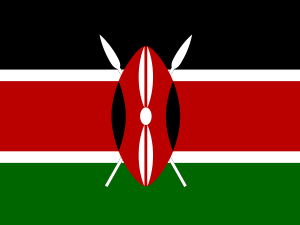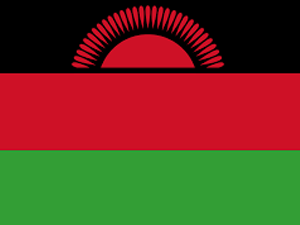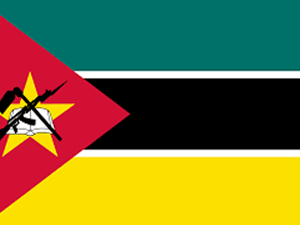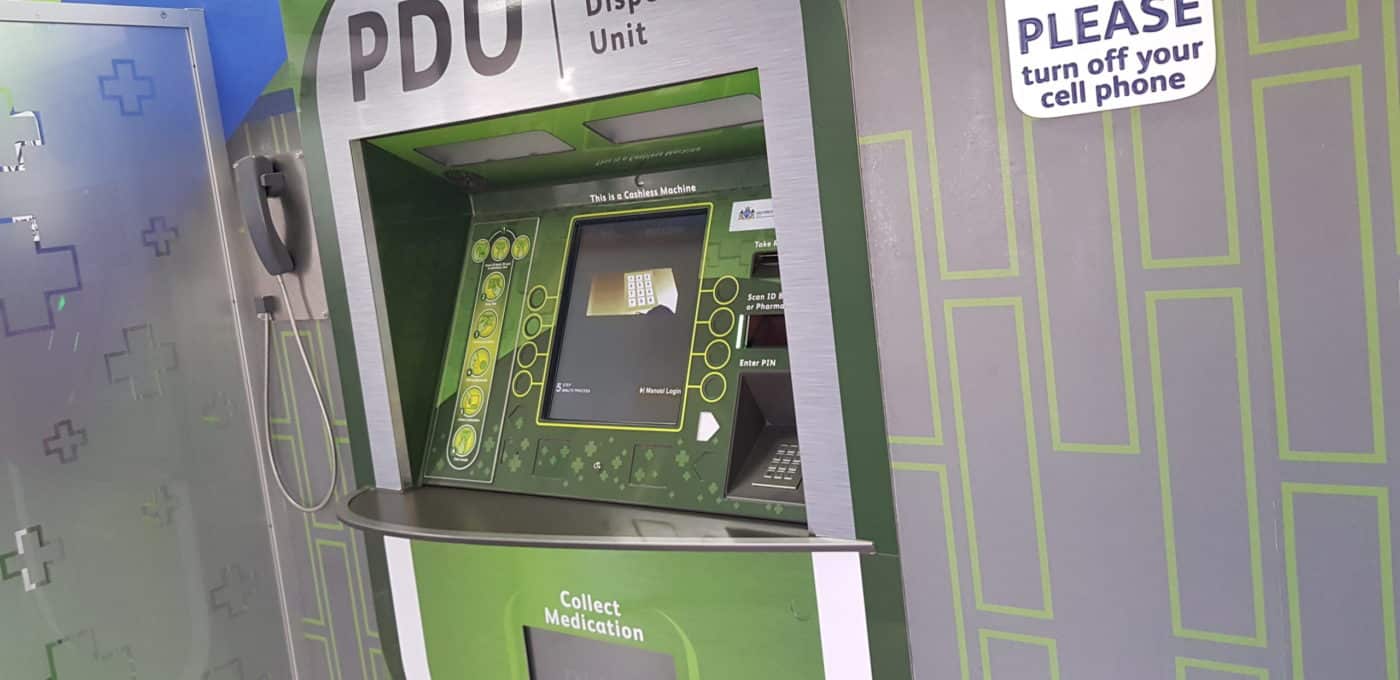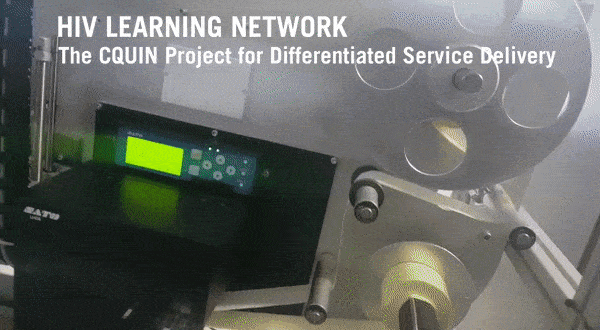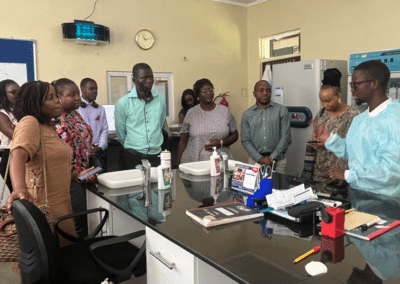Person-centered care is at the heart of differentiated service delivery (DSD), which aims to tailor HIV services to meet the needs and expectations of diverse groups of people living with HIV. For people doing well on antiretroviral therapy (ART), picking up medication can be a tedious ordeal. Overburdened clinics and pharmacies can mean long lines and wearisome wait times, making it difficult for recipients of care to access the critical medications they need to maintain their health. In South Africa, the Gauteng Department of Health is partnering with the non-profit Right to Care to pilot an innovative technological solution – the Pharmacy Dispensing Unit or PDU. These units, which have been compared to the automated teller machines (ATMs) used by banks, are a quicker, more efficient way for pharmacists to dispense medications to people with HIV and other chronic conditions. In November 2019, at the HIV Coverage, Quality, and Impact Network’s (CQUIN) third annual meeting in Johannesburg, South Africa, network member countries exchanged resources, tools, and best practices related to DSD scale-up.
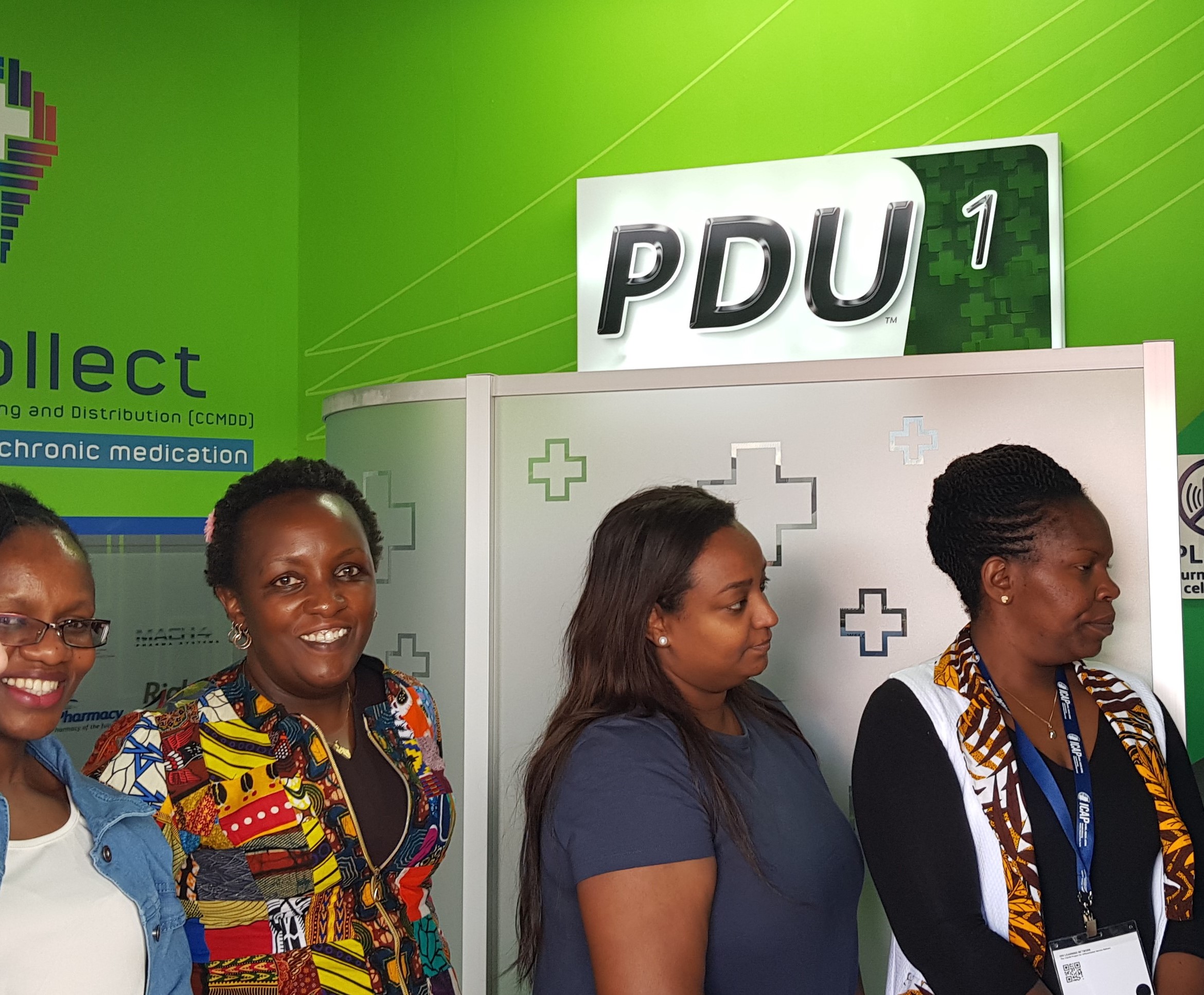
From left to right: Elizabeth Katiku, MD, MPH, technical advisor, the Centers for Disease Control and Prevention in Kenya; Doris Naitore, MD, MPH, regional director, ICAP in Kenya; Lee Abdelfadil, MD, DrPH, MSc, Advisor, the Global Fund; Catherine Ngugi, MD, MPH, Head, National AIDS & STI Control Programme
At a breakout session pairing teams from Kenya and South Africa, the team from Kenya was intrigued to hear about the ART ATMs and South Africa’s National Department of Health arranged an impromptu South-to-South (S2S) visit to the closest ATM. The team from Kenya witnessed firsthand how the prototype PDU operates. After the user selects one of 11 languages, the PDU connects them via video to a remote pharmacy assistant who conducts a consultation. The appropriate medications are then dispensed and the user receives a printed record of the exchange and a reminder of their next refill date. A follow-up notice is also sent by text message. The entire process takes only minutes.
“This is what Kenya needs to reach men and ensure ART multi-month dispensing becomes easier for the common person” said Catherine Ngugi, MD, MPH, head of the National AIDS and STI Control Programme (NASCOP) in Kenya, “if implemented in Kenya, the chronic disease ATM drug dispenser will relieve the government as the country still struggles with very lean human resources for health.” “We were delighted to see this spontaneous shared learning,” said Peter Preko, MD, CQUIN Director. “CQUIN is designed to promote south-to-south exchange, and this was a great example of learning in action.”
The pharmacy dispensing units were created through a partnership between the Gauteng Department of Health and the nonprofit organization, Right to Care









